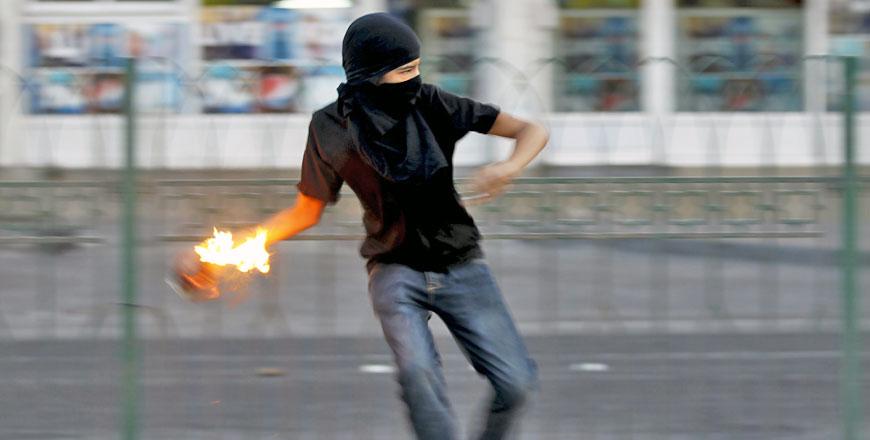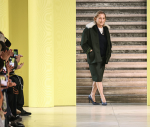You are here
Gulf states urged to fund 'Arab Marshall Plan' to contain unrest
By AFP - Sep 09,2014 - Last updated at Sep 09,2014
MANAMA — Experts have urged wealthy Gulf states to pump billions of dollars into their Arab neighbours to fend off the kind of unrest that has engulfed Syria and Iraq.
Meeting at a conference in Bahrain, bankers, regional analysts and economists said massive development was needed to fight the poverty and lack of opportunities that are fuelling unrest.
"We need a pan-Arab Marshall development plan financed by rich Arab countries" in the Gulf, Ibrahim Dabdoub, deputy chairman of the International Bank of Qatar, told a conference in Manama organised by the International Institute of Strategic Studies (IISS) that ended on Monday.
"At least a $100 billion (77 billion euros) is needed immediately to finance well-monitored development programmes over the next five years in a bid to contain Arab unrest," Dabdoub, a long-serving top banker, later told AFP.
A post-World War II US initiative, the Marshall plan helped revive Europe's shattered economy and bring long-term stability to the continent.
Fighting across the region, mainly in Syria and Iraq, has left thousands dead in the years since the mass demonstrations of the Arab Spring led to violent uprisings.
Following the outbreak of sweeping unrest in late 2010 in Tunisia and later in Egypt, Libya, Yemen and Syria, the Gulf Cooperation Council (GCC) states announced $10 billion aid packages to fellow members Oman and Bahrain to help them face increasing popular demands.
They also pledged several billion dollars of aid to Jordan and Morocco, the only Arab monarchies outside the GCC, and made pledges to impoverished neighbouring Yemen.
More recently, leading Gulf monarchies rushed around $20 billion in aid to Egypt after the military overthrew Muslim Brotherhood President Mohamed Morsi a year ago.
Growing Gulf divisions
The six-nation alliance — grouping Bahrain, Kuwait, Oman, Qatar, Saudi Arabia and United Arab Emirates (UAE) — can afford to be generous with its neighbours.
Its members have amassed surpluses of around $2 trillion due to high oil prices in the past decade and most of the funds are invested in the West.
These funds have allowed them to become more involved in the region, with Saudi Arabia and UAE taking the lead, said Emile Hokayem, senior fellow for regional security at IISS.
"But being more active means taking more risks... Gulf states are engaged in other Arab countries thus attracting more risks," Hokayem added. "Before the Arab uprisings, Gulf states were very stable."
And as they become more involved, divisions have also been sown among GCC members.
As the Muslim Brotherhood gained prominence in Egypt and several Arab countries following the Arab Spring, Saudi Arabia branded the group as "terrorist" while the UAE launched a campaign against it.
But Qatar continued to support the Islamist group, providing shelter to its leaders and infuriating other GCC members.
Hokayem warned of a "growing division between Gulf monarchies and their own people on foreign policy, especially involvement in Arab countries”.
Domestic spending needs will also limit the Gulf monarchies' ability to invest in the region, experts said, as they raise wages and benefits to appease citizens at home.
"Domestic spending in Gulf states increased substantially in the post-Arab Spring years because of salary and benefits' rises," London-based economist Alia Moubayed said.
But Moubayed stressed that long-term investment in regional stability was crucial, as massive changes in the neighbourhood will create a "volatile and unstable situation for a long time around the GCC”.
Related Articles
Bahraini security forces have seized bomb-making equipment being smuggled from Iraq aboard a passenger bus for use in attacks in the Gulf Arab kingdom, the public prosecutor said.
MANAMA — With a multibillion dollar economic revamp in full swing, tiny Bahrain is vying to keep pace with its Gulf neighbours after more th
MANAMA — An explosion in Bahrain has killed one police officer and wounded seven other people, among them a child, the country's interior mi

Opinion
Apr 09, 2025
Apr 08, 2025
- Popular
- Rated
- Commented
Apr 08, 2025
Apr 09, 2025
Newsletter
Get top stories and blog posts emailed to you each day.















